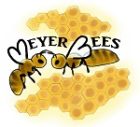If you’re starting your journey in beekeeping or expanding your apiary, finding reliable honey bee suppliers is one of the most important decisions you’ll make. The health and productivity of your bees directly depend on where they come from, so choosing the right supplier is key to long-term success.
Why Quality Matters When Choosing Honey Bee Suppliers
The quality of honey bee colonies you purchase influences everything—from honey production and pollination efficiency to disease resistance and temperament. Reputable honey bee suppliers, like Meyer Bees, ensure their bees are healthy, well-bred, and adapted to your local climate. In contrast, low-quality sources may offer bees with poor genetics or health issues, leading to colony collapse and financial loss.
Types of Honey Bees Available for Purchase
A good supplier usually offers a range of bee types to suit different beekeeping goals. Common breeds include:
- Italian Bees – Valued for their gentle nature and high honey production.
- Carniolan Bees – Hardy, with excellent overwintering ability and swarm control.
- Russian Bees – Naturally resistant to certain pests like varroa mites.
- Buckfast Bees – Hybrid bees bred for disease resistance and productivity.
Each type has unique strengths, so your choice should reflect your environment and objectives.
What to Look for in a Honey Bee Supplier
When choosing from various honey bee suppliers, consider the following factors:
Reputation & Reviews:
Look for suppliers with plenty of positive feedback from other beekeepers. Online forums, social media, and beekeeping associations are great places to start.
Certification & Practices:
Ask if the supplier is inspected by local agricultural departments or follows sustainable practices. Certification adds credibility and ensures bees are raised under strict health standards.
Bee Health Guarantee:
Reliable suppliers often provide a live delivery or health guarantee. This shows they stand behind the quality of their bees.
Availability of Different Packages:
Most suppliers offer:
- Nucs (Nucleus Colonies): Small, established colonies with a mated queen and brood.
- Bee Packages: A bulk quantity of bees with a queen, typically for new hive installations.
- Mated Queens: For those who already have hives and need to requeen.
Shipping Options & Timing:
Bees are temperature-sensitive, so choose suppliers who ship safely and quickly, preferably in spring when beekeeping begins.
Benefits of Buying from Local Honey Bee Suppliers
While national suppliers have broad selections, local suppliers offer unique advantages:
- Climate-Adapted Bees: Local bees are better adapted to regional weather conditions and floral sources.
- Community Support: Buying locally often comes with guidance, classes, and mentorship opportunities.
- Lower Stress on Bees: Reduced travel time means bees experience less stress during transport, leading to smoother hive integration.
Supporting Ethical Beekeeping
A trustworthy honey bee supplier also promotes ethical beekeeping practices. That means they avoid over-harvesting queens, overloading hives, or using excessive chemicals. They focus on preserving bee populations and supporting pollinator health. Always ask how their bees are raised and what health practices they use.
Final Thoughts
Finding the right honey bee suppliers is foundational to a thriving beekeeping experience. Don’t rush this decision—do your research, ask questions, and always prioritize bee health and quality. Whether you’re buying your first nuc or expanding your apiary with several packages, working with a reliable supplier will pay off in stronger colonies, more honey, and greater satisfaction as a beekeeper.
Start your search today and invest in bees that will help you grow your beekeeping journey for years to come.

